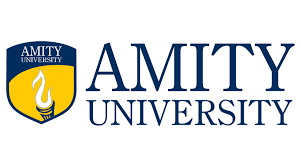The Diversity of International Educational Innovations of B Sc Hons Mathematics Colleges in UP
Mathematics is no longer confined to traditional teaching practices.
Education has undergone global innovation. The B Sc Hons
mathematics colleges in UP are expanding mathematics learning horizons
with global teaching tactics and are exploring cross-border academic ideas and
technological enhancements.
With increased collaboration, these colleges are now importing
global best practices in content delivery, analytics, and research in BSc Hons mathematics
programs.
Global teaching methodologies
New-age learning emphasises engagement, application, and exploration
moved beyond rote learning. Case-based learning is now adopted from
international university frameworks, and the integration of gamified learning
in abstract mathematical topics, along with peer-to-peer teaching, inspired
new-age learning. Also, discussion-centric tutorial systems and video-led
explanation modules promote learning.
International collaborations and academic exchange
Partnering with global institutions has opened up exciting
educational pathways for math students. Semesters abroad or summer school
tie-ups with foreign universities, joint curriculum design with overseas
professors or scholars, and global mathematics conferences for undergraduates
have promoted knowledge and experience.
MOUs for collaborative student research across borders and exchange
programs with credit transfer options with dual-degree models or integrated
postgraduate tie-ins enhance understanding internationally.
Use of advanced tools
Globalisation has made international digital platforms part of
everyday classrooms. MATLAB-based problem-solving sessions, introduction to R
and Python in math labs for data analytics, and other tools for interactive
geometry learning are new and welcome.
Virtual simulations for abstract topology and pure math concepts and
access to digital international libraries and math archives with licenses of
global open-source tools allow for academic experimentation.
Inclusion of cross-disciplinary international curriculum elements
Mathematics intersects with many global disciplines, and colleges
now incorporate this integrative learning. Math in global finance,
cryptography, and computer vision modules offer exposure to actuarial science
and risk analytics from global syllabi.
Interdisciplinary topics like bio-mathematics and epidemiology,
real-world problem-solving using global climate or economic data, mathematics
in AI, robotics, international engineering design, and courses on mathematical
modelling are used in policy simulations.
Conclusion
In conclusion, these innovations in mathematics learning shape not
only better problem solvers but also globally aware professionals. Students
benefit from dynamic tools, foreign academic partnerships, and
interdisciplinary modules.



Comments
Post a Comment